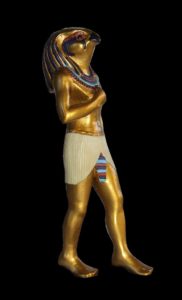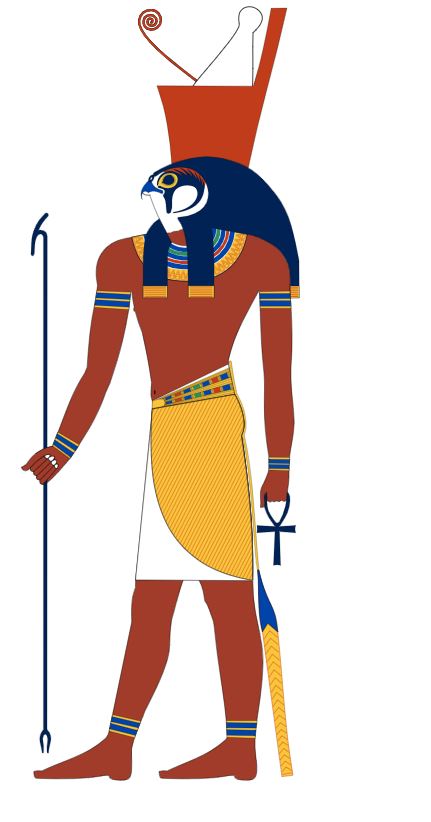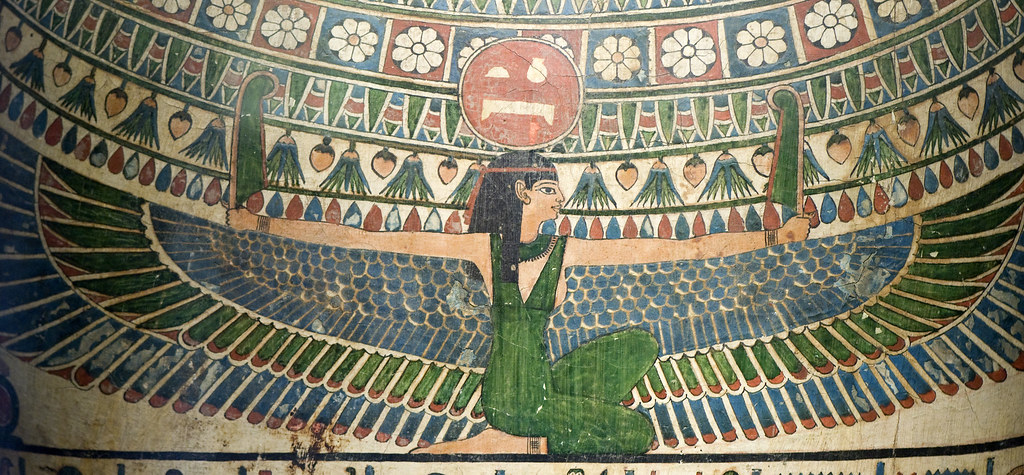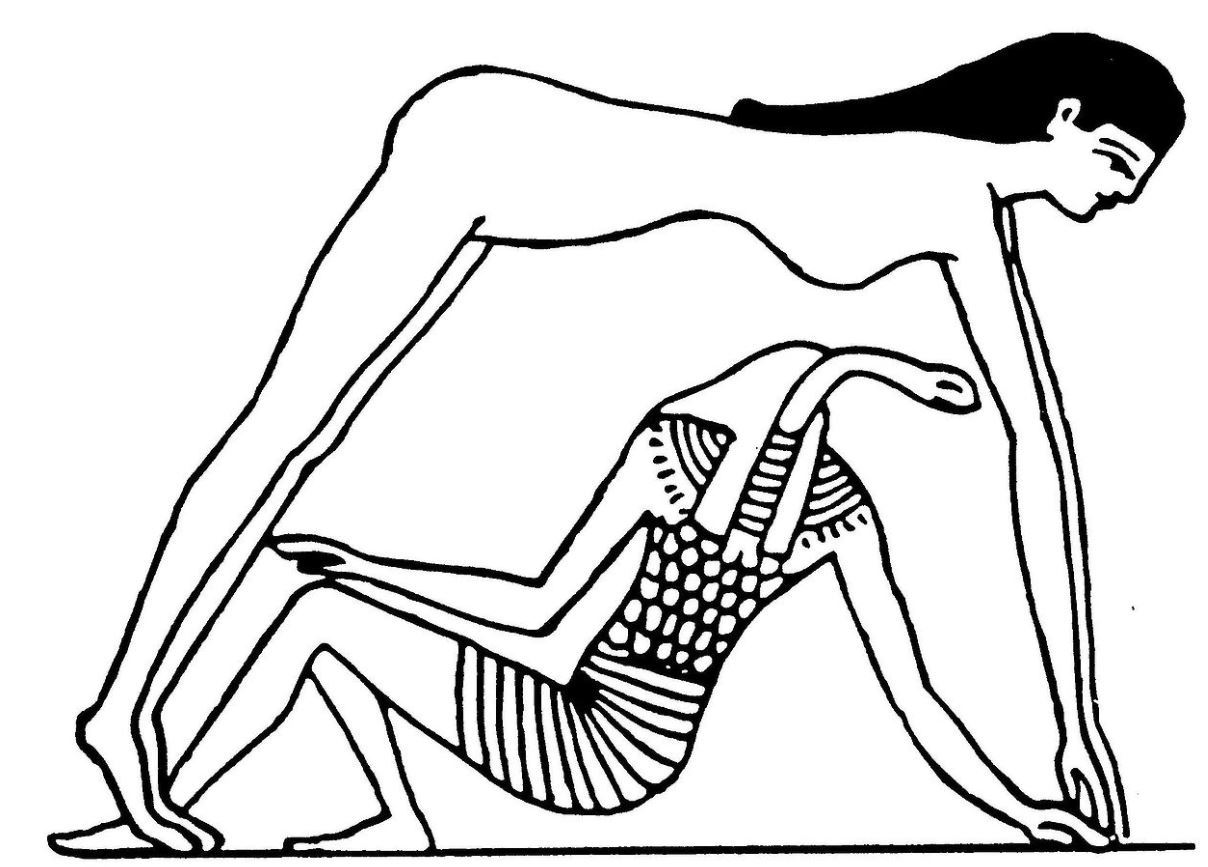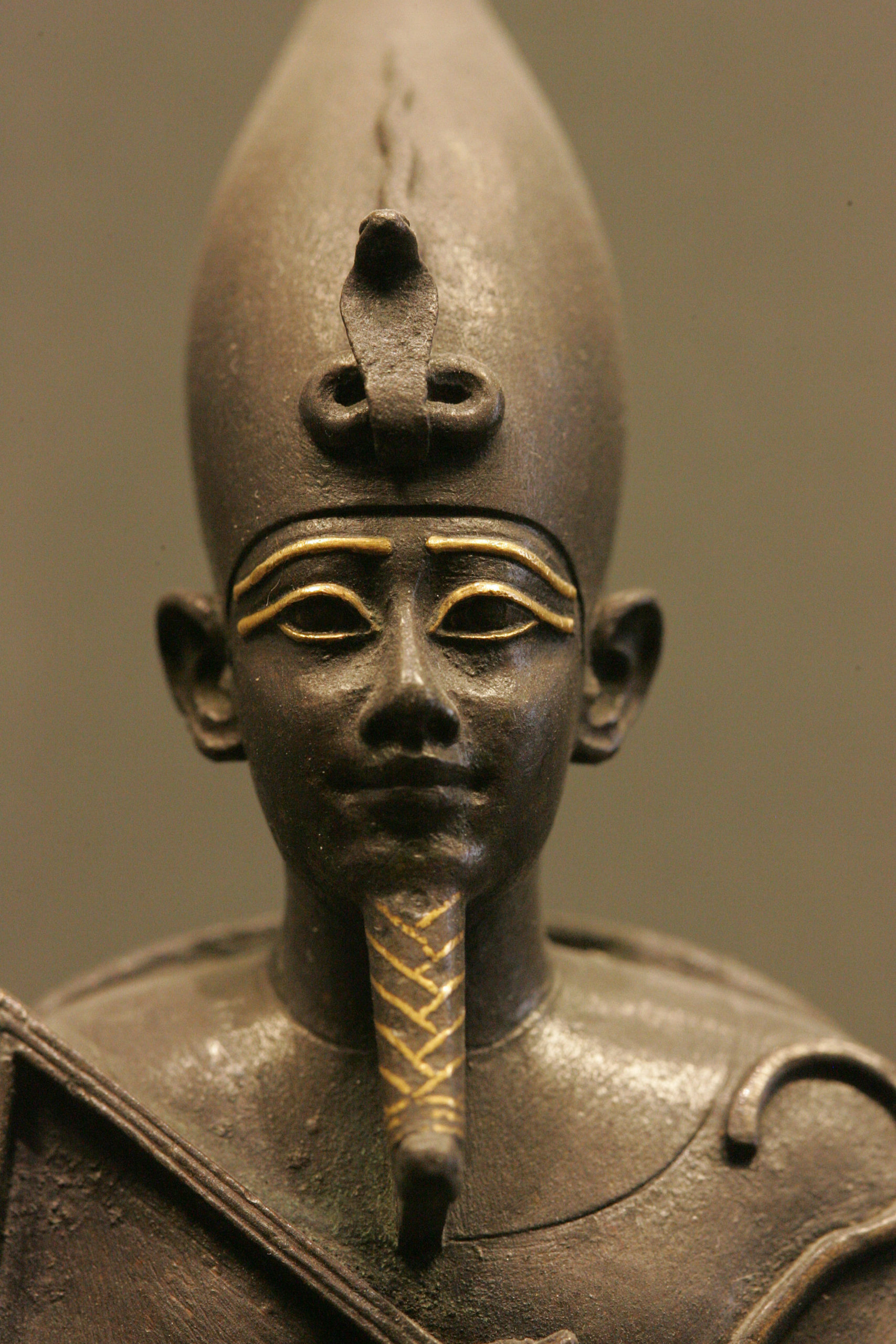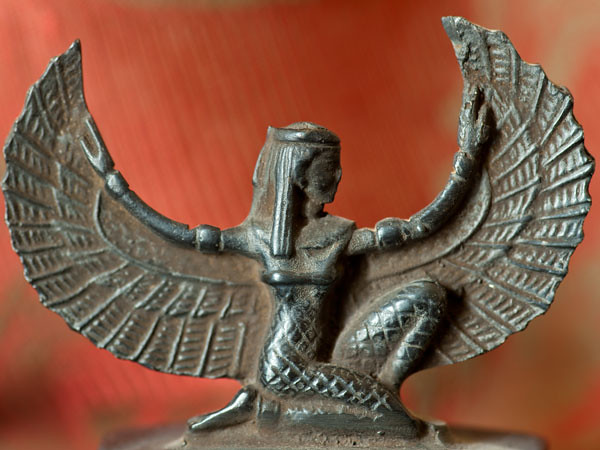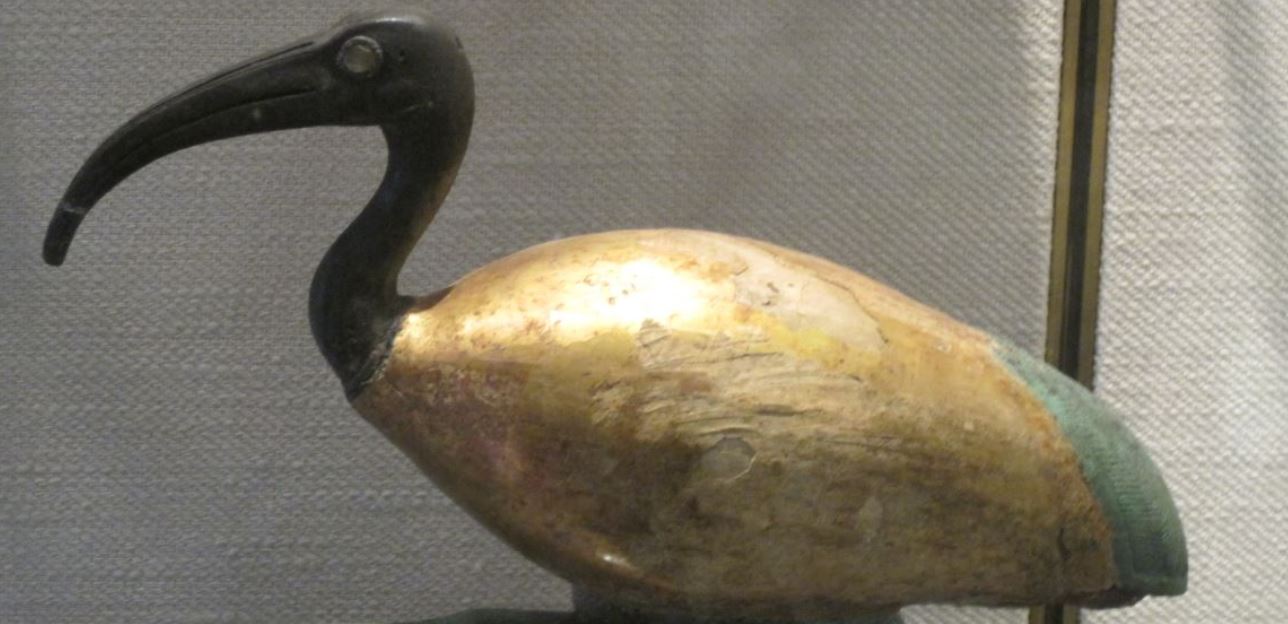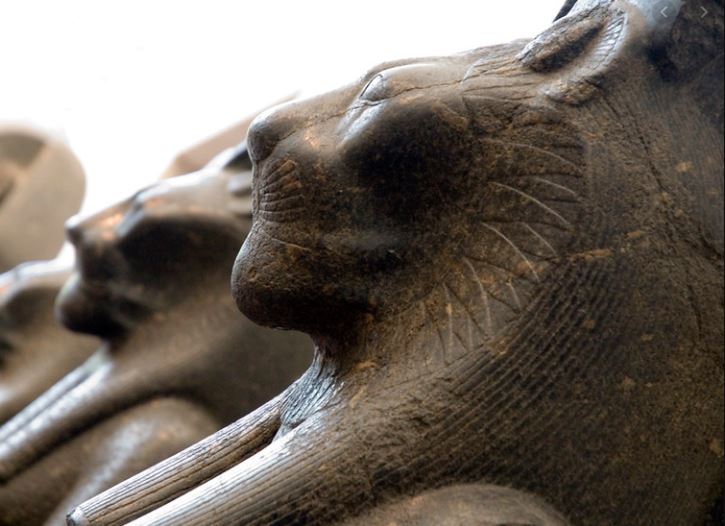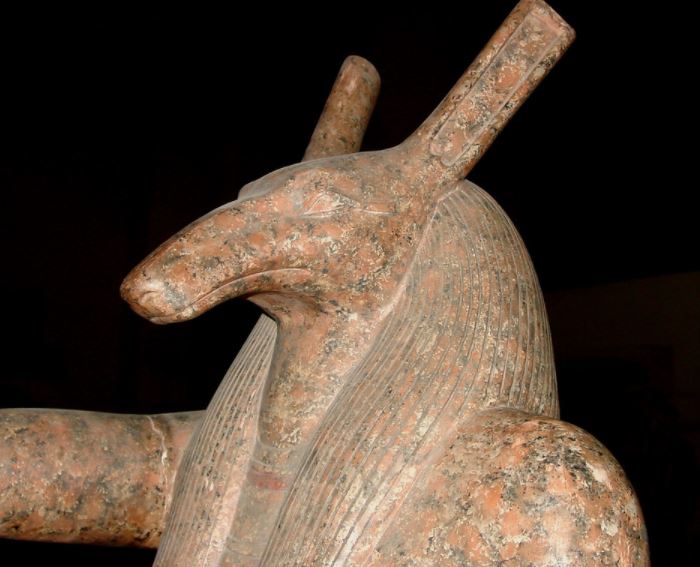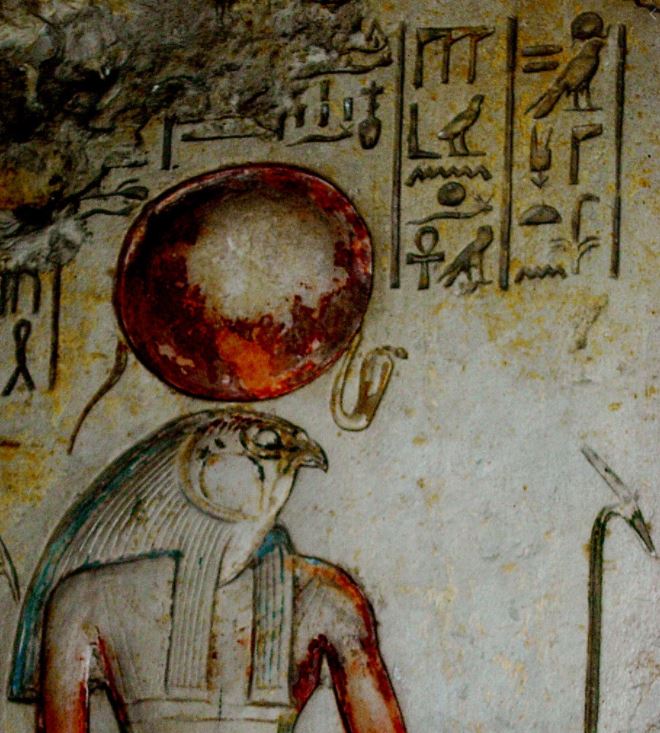Horus, the Egyptian God of War and Hunt
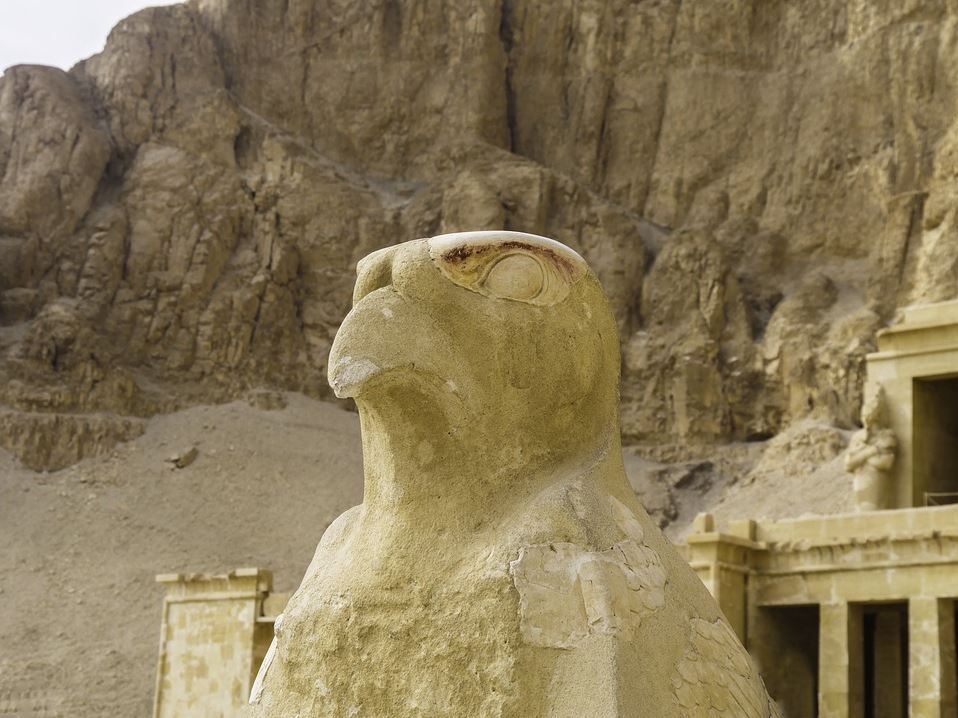
Like many other ancient religions, the Egyptian Pantheon also included a deity dedicated to war. In this case, we are going to be learning about Horus, the Egyptian god of War.
This god originates from the ancient mythology in which Horus was known as the Egyptian God of war, hunt, and protection.
He was an almighty deity valued and worshipped by all members of society in search of shielding and strength.
The Egyptian god of war Horus: meaning of his name
Although we know him now as for Horus, the truth is he had many different names.
He has been known under various other names such as Har’, Hor’, Her’, or Heru’ depending on where the story you are hearing originates.
Nonetheless, he is most commonly known as the mighty Horus, Egyptian God of War.
One of the images of Horus the Egyptian god of war and hunt
What is Horus the god of?
Horus is the god of war, hunt, and shielding. Sometimes, it is also known as the Egyptian sun god Horus. Later we will learn why.
The reason he was known under such a variety of names is that he appeared as a local God in many places.
Therefore he was known to have many different powers and origin stories depending on the area.
The history of Horus and his myth.
Horus was the son of two other ethereal and almighty beings from ancient Egyptian mythology.
His father was Osiris, God of the Afterlife, of the Deads and the Underworld, and his mother was Isis, Goddess of motherhood, magic, and fertility.
From the 1st dynasty, Horus was presented as an antagonist that was later reconciled in the harmony of Upper and Lower Egypt.
He was known to have saved Egypt with this reconciliation done through his own ruling.
The origin of the Egyptian god of war
The most well-known story of Horus is from the myth of Osiris, his father.
This myth dates back to a manuscript from the 20th Dynasty (1090-1077 BCE) that depicts the origin of Horus’ influence on Egypt.
In the myth of Osiris’, Seth (who was the brother of Osiris) brutally murdered him to contend Horus’ lineage to the Egyptian throne.
From here, Horus became Seth’s mortal enemy. Eventually, the two came face to face in a battle and the Egyptian god of war and hunt, Horus, was able to savagely defeat him.
However, in the process, Horus received a fatal wound to his left eye. Horus’ eye, depicted as the moon, was seemingly irreparably damaged until the God Thoth healed it.
This damage to the eye, however fleeting, is known to be a mythical representation of the moon phases.
What does the God Horus look like?
Horus was often seen equipped with a spear and was a fierce warrior. Throughout his story recorded over time, there is no mention of him dying’ in the typical sense of the word. There is, however, death and resurrection scattered throughout his myths.
This is one of the pictures of Egyptian god Horus
Horus Egyptian god powers
Horus is an almighty being that possesses many conventional powers of the Egyptian Gods and Goddesses.
His powers included superhuman strength and unmatched stamina.
He was also entirely resistant to harm and conventional injuries making him a fierce fighter in battle. Being created in the image of a falcon, the Egyptian god of war was also able to fly.
The symbology of Horus and its meaning
There are many different interpretations of symbols relating to the Egyptian god of war, though all tend to revolve around healing and strength.
Here are some of the ways people honored Horus and understood his symbols to mean.
The Falcon
More often than not, Horus was depicted in the form of a falcon that became one of the most commonly used symbols in ancient Egypt. He was either depicted entirely as a falcon or, usually when depicted in battle, as a falcon-headed man.
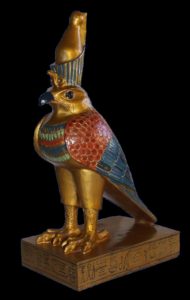
The falcon: one of the representations of the Egyptian god of war
The eye of Horus
You may have heard the saying the eye of Horus’. It is also known as wedjat eye’ or uidjat eye’ and it is a concept in ancient Egyptian religion that is representative of well-being, healing, and protection.
Many people believe that no harm can come to them and that good fortune will come to them if they carry the symbol of Horus.
As previously mentioned, the story of Horus talks of the battle wound he received to his left eye.
Due to the mythical healing of it, the eye of Horus is a beyond powerful symbol as it defies what should be.
The right eye of Horus was shown to be the sun or the morning star which was supposed to be represented of power and quintessence.
The left eye was shown to be the moon or evening star to represent healing.
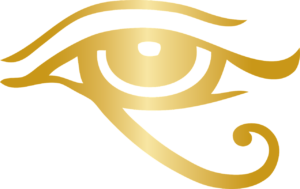
This is a representation of the eye of Horus
Some facts about Horus the Egyptian god of war and hunt
Horus majorly influenced the lives of the ancient Egyptians and they often tried to draw strength from him and his powers.
In Nekhen, the religious and political capital of prehistoric Egypt, people began to believe that the reigning king was a manifestation of the Egyptian god of war, Horus.
Lower and Upper Egypt, once severely parted, became reunited by the Kings from Nekhen and the ideology of them being manifestations of Horus became wildly believed because of this.
At this time, Kings had several important names. Originally three but later changed to five, these important King names were etched on monuments and tombs in a rectangular frame called a serekh.
The most important of these names was the King’s name of Horus that would be etched with his body for all of eternity. Often these Kings were also depicted with an image of Horus floating above them.
Once these Kings died, they were no longer the manifestation of Horus and instead became his father (or brother, depending on some accounts) Osiris, God of death and the underworld. While this may not sound good, based on modern depictions of the underworld, it’s actually not the case.

Horus Egyptian god art, a temple dedicated to this deity
The ancient Egyptians didn’t have a form of hell but instead heaven that had them carry out manual labor for eternity.
You could be buried with figurines that would work for you or if you were one of the noble class, you may ascend to the land of the Beautiful West which was a restful paradise.
The wicked did not get the chance of hell but merely had their hearts weighed by Osiris and Anubis, the god of death, to decide whether they were worthy of eternal life or whether they’d be destroyed.
Other Horus Egyptian god facts:
- Horus is one of the oldest Egyptian Gods and most important.
- As well as being the God of war, he was also worshipped as the Egyptian sun god Horus, honored for creating the sky.
- There were many falcon Gods before Horus but, in time, he ended up representing all of them.

